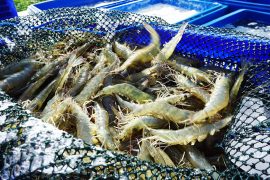
Ants 'hold a grudge' against aggressive rivals
Ants, often considered simple creatures, have shown a surprising ability to learn from experience. A study led by Dr. Volker Nehring and doctoral student Mélanie Bey from the University of Freiburg reveals that ants can modify their behavior based on past encounters.
Published in the journal Current Biology, the research sheds new light on how these social insects interact with their environment and competitors.
Ants remember encounters with rivals
The researchers from the University of Freiburg studied how ants interacted with members of rival nests. They designed controlled experiments to observe if ants could recall past interactions and adjust their behavior accordingly.
The results revealed that ants could indeed remember their encounters. When ants had faced aggression from members of a particular nest, they displayed heightened aggression toward those nest members in future encounters.
On the other hand, ants that had only encountered passive members of a nest were noticeably less aggressive toward them later. This shows that the ants’ behavior was shaped by their experiences rather than being purely instinctual.
“We often have the idea that insects function like pre-programmed robots,” said Dr. Nehring. “Our study provides new evidence that, on the contrary, ants also learn from their experiences and can hold a grudge.”
Ants identity rivals through scent
Ants use odors as a key tool to recognize members of their own nest and to distinguish rivals. Each nest has its own unique scent, which helps ants determine whether another ant belongs to their group or is an outsider.
Earlier studies showed that ants tend to act more aggressively toward rival ants from nearby nests compared to those from nests farther away. However, the underlying reason for this pattern wasn’t fully understood.
Dr. Nehring’s research uncovered that memory plays an important role in this behavior. Ants don’t just recognize rivals by scent in the moment; they also remember the specific odor of attackers they previously encountered.
If an ant remembers a rival as aggressive, it will respond with heightened aggression when it meets that rival again. This confirms that ants are not just reacting instinctively but are also using past experiences to shape their behavior.
Observing the learning abilities of ants
The researchers conducted their study in two carefully designed phases to investigate how ants respond to different types of encounters with rivals.
Learning phase
In this phase, ants were exposed to three distinct groups: ants from their own nest; aggressive ants from a rival nest (Nest A); and aggressive ants from another rival nest (Nest B).
Over five consecutive days, the ants had one-minute encounters with these groups. These repeated interactions allowed the ants to form specific memories of their experiences with each group.
Testing phase
In this phase, the researchers observed how the ants behaved when they encountered rivals from Nest A. The results showed a clear difference in behavior:
Ants that had previously interacted with aggressive rivals from Nest A showed significantly more aggression toward members of Nest A.
Ants that had no prior encounters with Nest A, or those that only interacted with members of their own nest, were much less aggressive.
Second experiment
To explore how the nature of encounters influenced ants learning and behavior, the team modified the experiment. They included interactions with passive ants, ensuring passivity by disabling their ability to fight (e.g., by cutting off their antennae).
Ants that had only encountered passive rivals displayed significantly less aggression in later encounters.
These results demonstrated that ants’ behavior is shaped by their specific experiences. Aggressive past interactions led to heightened aggression, while encounters with passive rivals resulted in a calmer response. This highlights the ability of ants to learn and adapt based on their interactions.
Future research on social insects
This discovery challenges long-standing assumptions about insect behavior.
The team now plans to explore whether ants adapt their olfactory receptors based on their experiences. Such adaptations could reflect learned behaviors at the sensory level.
Ants, far from being robotic, show an intricate blend of instinct and experience-based learning. This research not only deepens our understanding of ant behavior but also opens doors to exploring learning mechanisms in other social insects.
The study is published in the journal Current Biology.
—–
Like what you read? Subscribe to our newsletter for engaging articles, exclusive content, and the latest updates.
Check us out on EarthSnap, a free app brought to you by Eric Ralls and Earth.com.
—–













